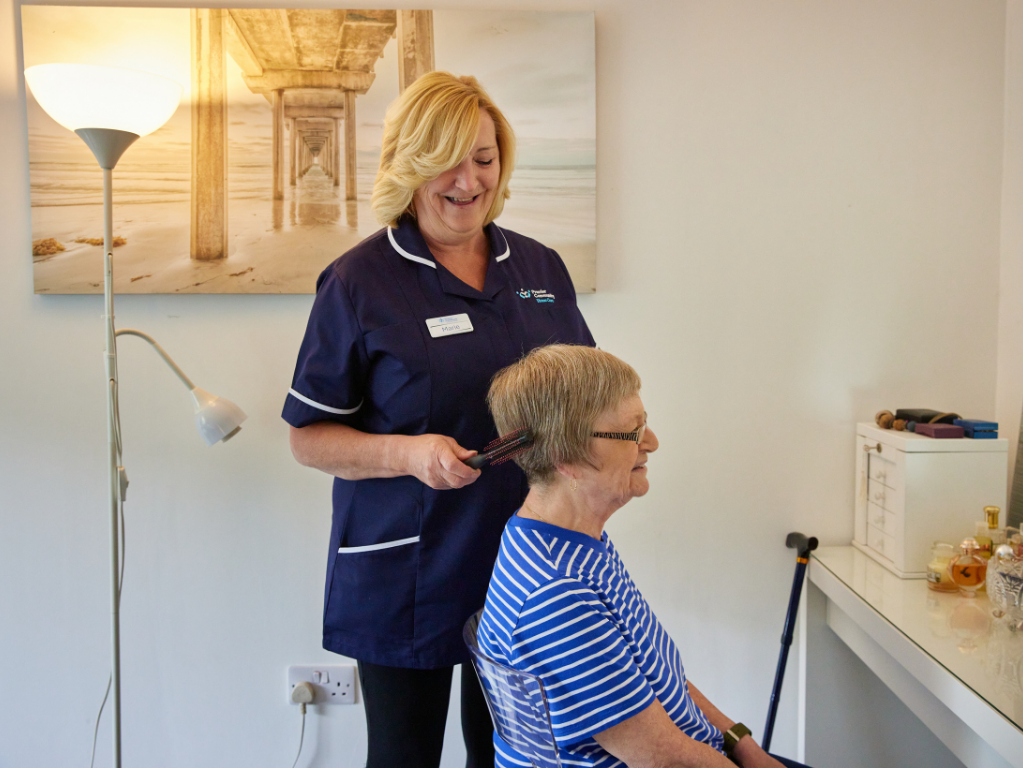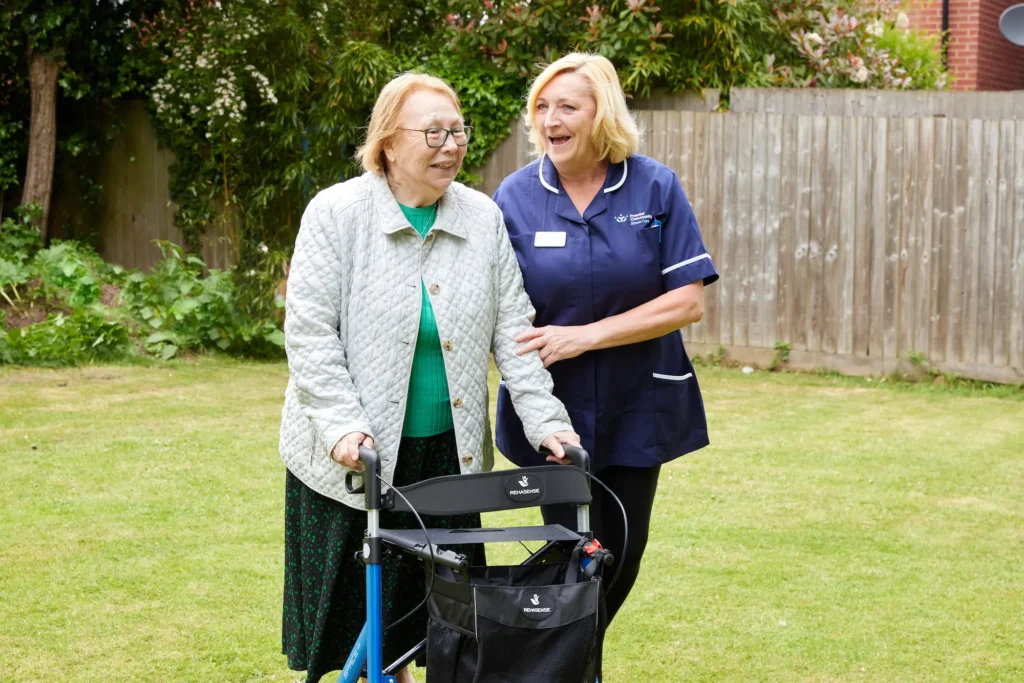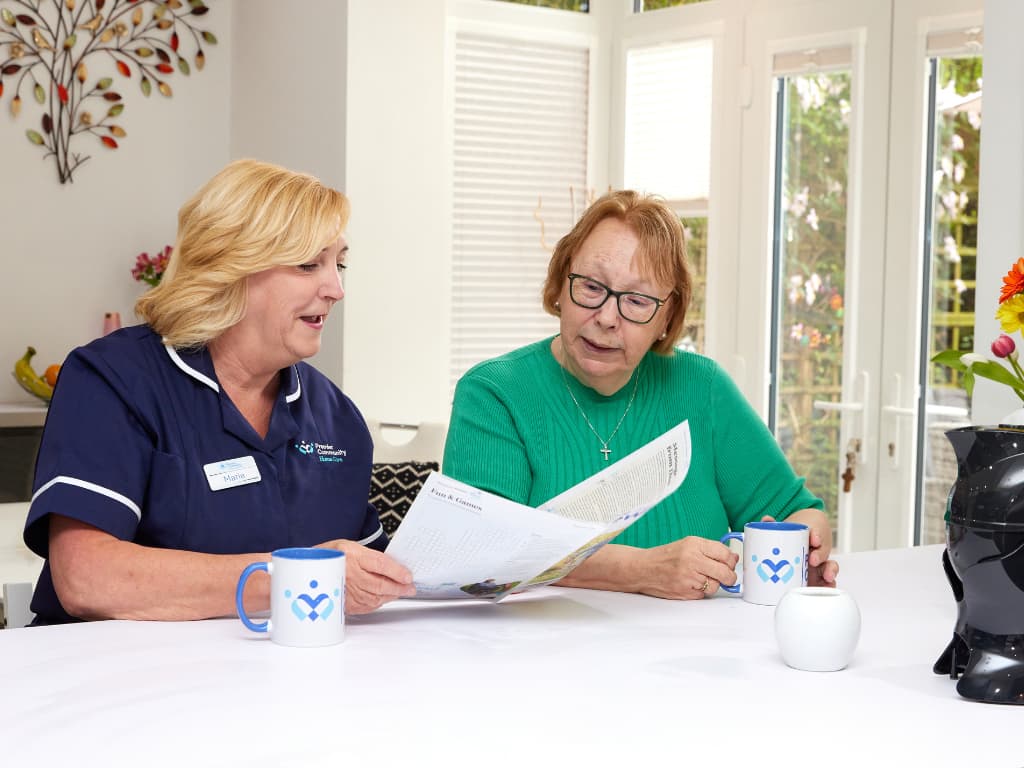When a live-in carer joins the home, they’re not just providing essential support but becoming part of your everyday life. It’s a unique relationship built on mutual respect, clear boundaries, and shared understanding. In this article, we explore what families and individuals can expect from a live-in carer and what’s outside of their responsibilities, including what to expect from a live-in carer.
So What Can You Expect from a Live-In Carer?
Live-in carers provide non-medical, person-centred support to help someone live safely and comfortably at home. Their responsibilities typically include:
- Personal care (e.g., washing, dressing, toileting)
- Support with mobility around the home
- Preparing meals and assisting with eating
- Household tasks such as laundry and light cleaning
- Running errands or shopping
- Companionship and emotional support
- Medication assistance
- Assistance with appointments and routines
- Overnight reassurance and safety checks
These tasks are tailored to the individual’s needs and outlined clearly in the care plan.
Respecting Privacy and Personal Space
Although a live-in carer stays in the home, they are not available 24/7 without rest. Carers need dedicated breaks during the day and a reasonable amount of uninterrupted sleep at night (unless providing specific overnight care). It’s also important that they have:
- A private bedroom or sleeping area
- Scheduled time off and respite days
- Space for personal downtime (such as reading or making a private call)
This balance ensures our carers can continue delivering high-quality support with energy and empathy.
What Live-In Carers Don’t Do
To protect both clients and carers, it’s helpful to be clear about tasks that fall outside a live-in carer’s role:
- Heavy-duty cleaning: Tasks like deep cleaning, gardening, or maintenance fall outside their remit.
- Financial handling: Carers shouldn’t manage personal finances or bank accounts.
- Lifting heavy objects or equipment without appropriate equipment or assistance.
If medical or additional services are needed, Premier Community can help coordinate with appropriate professionals or arrange for additional care.
Setting Clear Expectations Early On
A successful live-in care arrangement depends on open communication. Before care begins, our dedicated live-in care team will discuss the following aspects with you.
- Daily routines and preferences
- Cultural or dietary needs
- House rules and any areas considered private
- Visitor policies
- Emergency procedures
- Handover and holiday cover arrangements
Premier Community ensures all of this is covered during the care planning stage so everyone feels informed and confident from the start.
Building a Positive Living Arrangement
While professional, the relationship between a live-in carer and their client is often friendly and supportive. Over time, many clients see their carer as a trusted companion—someone who listens, encourages, and truly understands them. But this trust flourishes best when boundaries are respected and responsibilities are clearly defined.
Support for Carers and Families
Premier Community remains in close contact with both carers and families throughout the care journey. We provide:
- Ongoing supervision and support
- Regular reviews and feedback check-ins
- Backup planning for carer breaks or emergencies
This ensures that both the person receiving care and the carer feel respected, safe, and supported at all times.
Final Thoughts
Live-in care is a powerful solution for maintaining independence and comfort at home, but it works best when everyone understands their role. With mutual respect, clear boundaries, and compassionate support, the care relationship can be both professional and deeply meaningful.
If you’re considering live-in care, our team at Premier Community is here to guide you every step of the way. Contact us today for friendly advice and a tailored care plan.




